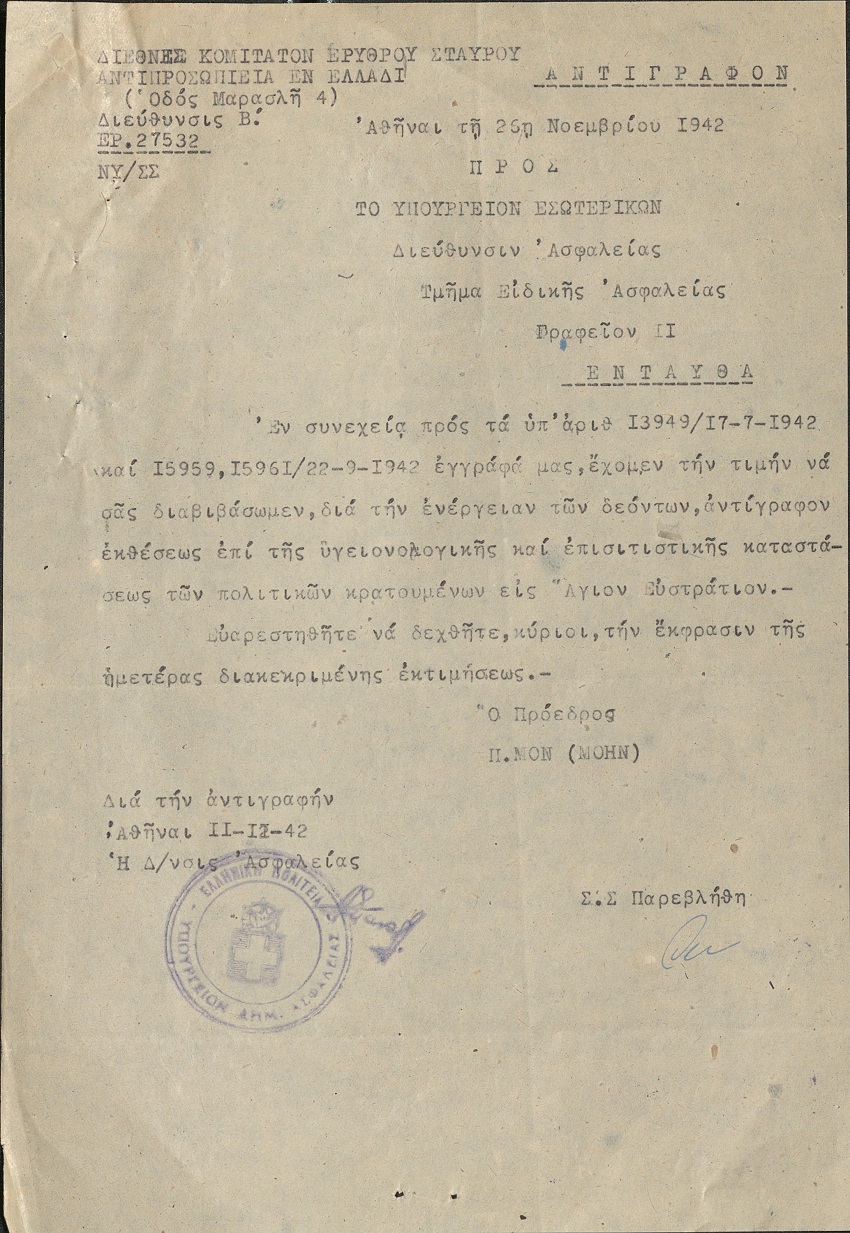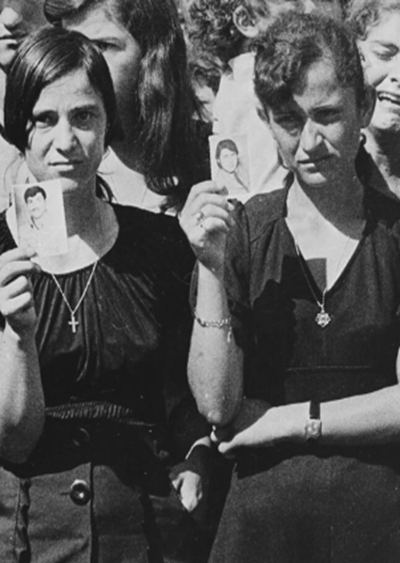
Katerina Zografou
Reading Room and Archival Research Department, General State Archives of Greece – Central Service
The most isolated island in the north-eastern Aegean houses nowadays about 270 permanent inhabitants and constitutes a destination for alternative holidays. On hearing its name, however, one by association recollects one of the blackest sides of modern Greek history, that of the deportation of political dissenters. Ai-Stratis, in the years 1929-1962, constituted a place of exile for thousands of communists and left-wing fighters.
The Middle East Government archives, kept in the Central Service of the General State Archives[1] , inform us of the sanitary and victualling condition of political exiles during the German occupation through the summary report drawn up by the physician Maximos Moridis.
In September 1942, Maximos Moridis visits the island of Agios Eustratios as an emissary of the Greek Red Cross and becomes witness to the living conditions of the prisoners, most of whom remain there as exiles already since the period of Metaxas’ dictatorship.
As is mentioned in the report, in the autumn of 1941 are found on the island 74 detained communists and live in a room too small for their number. Among the prisoners are four women and two children. In the rooms’ basement were detained 31 exiles seriously ill, all of whom died in the winter of 1941, in conditions of cold and extreme hunger.

Many prisoners suffer from diseases such as tuberculosis, adenopathy, malaria and pleurisy. It is characteristically said: “Almost all are gaunt and have symptoms of undernourishment. Their average weight is 32 to 40 oka. They are anaemic, exhausted, they walk with difficulty supporting themselves on canes”. Moridis himself ensured the transport of three patients who suffered from tumour and warns of the certain death of a patient who remains on the island.
The physician reports that ‘’the prisoners are industrious and disciplined” and that “the late gendarmerie commander much tortured them”[1]. Indeed, he arrives at the conclusion that during the past year the prisoners were saved thanks to the International Red Cross and proposes that the consignments of food be sent first to Agios Eustratios and then to Lemnos, while the prisoners must mainly receive bread, olive-oil, clothes, shoes and soap.
The physician points out that the trip to Agios Eustratios lasts two months, while the island has no means of transportation or communication with the rest of the country and concludes that the island is unsuitable for the housing of the prisoners, who must be transferred to another place of exile. Besides, this is also the wish of the island’s inhabitants.
Especial reference is made to consumptives, who dwell apart and are not accepted on Lemnos, while they constitute a peril to the island.
The copy of the physician’s report is forwarded by the President of the International Committee of the Red Cross to the Special Security Division on 25 November 1942 and correspondence regarding the prisoners’ transference follows.
After the liberation in October 1944, the exile camp of Ai-Stratis closed down and the last political prisoners were freed. In the spring of 1947 Ai-Stratis was re-established as a place of exile for political dissenters. It is estimated that from 1947 to 1962 inclusive the island housed about 9,000 exiles.
[Source: General State Archives of Greece – Central Service, Middle East Government archives]
[1] file 1882/4










Leave A Comment